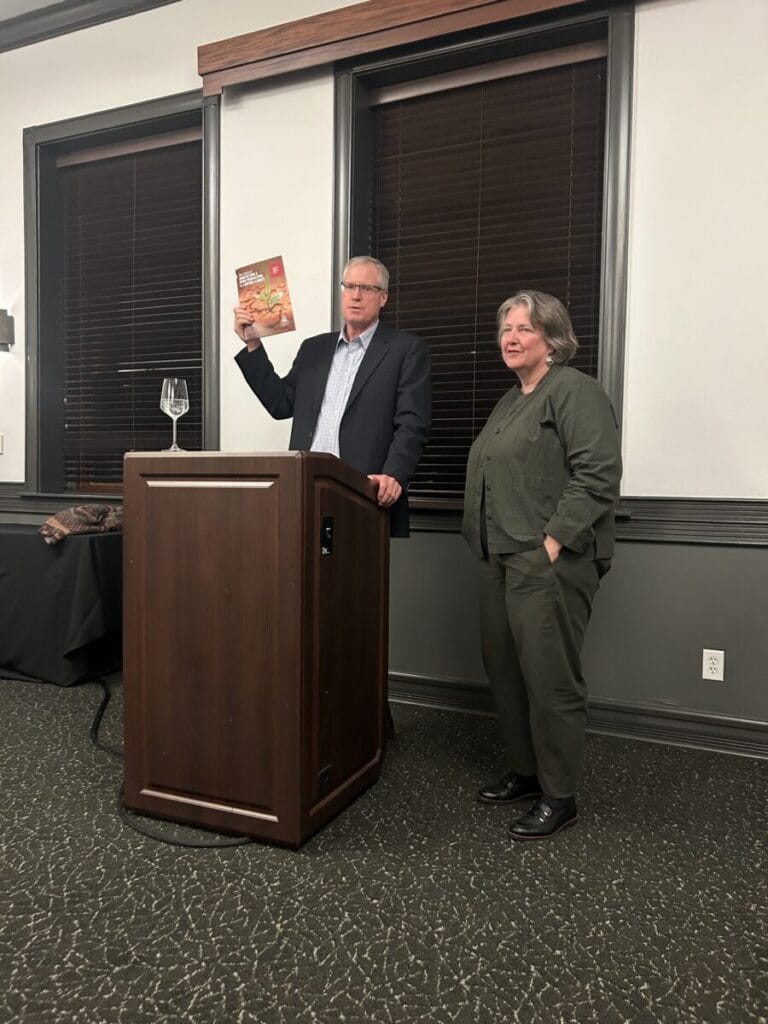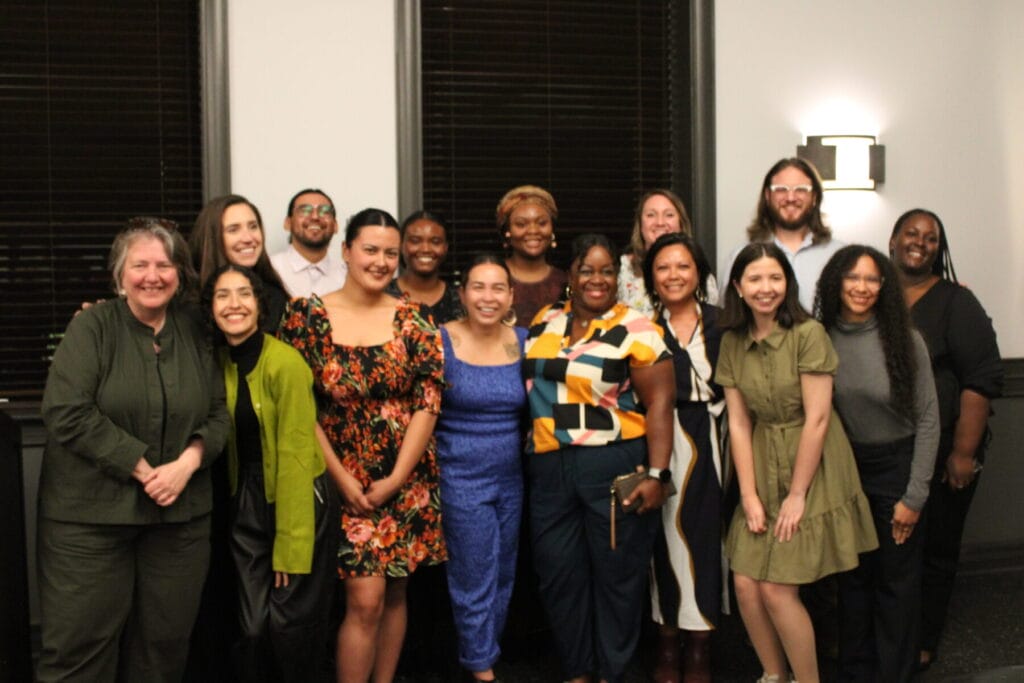
By Erica Martin, ASU sustainable food systems graduate student
On the final evening of the Food and Farm Immersion, students, faculty, and staff gathered at ASU’s University Club to celebrate the week with the help of the Director of the Arizona Department of Agriculture, Paul Brierley. Director Brierley took the helm of the agency on June 26, 2023, after working for decades as a leader in the state’s agricultural industry, including as the first Executive Director of the University of Arizona’s Yuma Center of Excellence for Desert Agriculture. As Director of the Arizona Department of Agriculture, Director Brierley is responsible for advancing Arizona agriculture and supporting a variety of producers, such as some of those we met growing leafy greens or raising dairy cattle. His years of experience as a farmer, building public-private coalitions, and advocating for Arizona agriculture make him well-suited to take on the role as the state’s director.
For much of his career, Director Brierley has advocated for public-private partnerships. His background in both engineering and agriculture provide a unique vantage point to identify opportunities to connect industry stakeholders with academic researchers to solve agricultural production challenges. In his previous role at the Yuma Center of Excellence for Desert Agriculture, he developed public-private partnerships between industry stakeholders experiencing complex agricultural challenges with skilled researchers who could fill knowledge gaps. Building networks, Director Brierley emphasized, is a key element to professional and organizational success.
It was his own strong network that supported Director Brierley's appointment to the head position at the Arizona Department of Agriculture earlier this year. One of Director Brierley’s primary goals in leading the 300-person agency is to use “the good type of regulation to ensure food safety and that Arizona products are accepted on the market.” State producers cultivate high-quality produce that is shipped across the country and globally. For example, the Yuma region, known as the “Winter Salad Bowl,” produces between 80-95% of the country's leafy green shipments during the peak growing season in December (University of Arizona Cooperative Extension, 2020). The department works diligently to ensure that crops grown in the state comply with all guidelines so that product can be safely shipped out to consumers across the country and globe.
Given its hot and arid climate, Arizona producers face a uniquely challenging production landscape. More recently, the agency has expanded into programs that address sustainability and climate-smart agriculture. To manage water issues, Director Brierley also serves on the state’s Water Advisory Council under Governor Katie Hobbs, where he provides guidance on urban and rural groundwater management in Arizona, a critical issue particularly for rural farmers.

In addition to regulatory compliance and supporting new programs, the agency provides training and assistance to producers around a variety of topics, such as food safety and pest control. Training was particularly critical during the 2018 E. coli outbreak in Yuma, which affected consumers across the country. Response delays and challenges of federal jurisdiction necessitated a new approach, resulting in the establishment of a rapid response team for Arizona and increased collaboration between federal and state agencies.
Director Brierley’s remarks provided students with invaluable insight into the critical role that the Arizona Department of Agriculture plays in protecting consumer health, supporting Arizona-grown products on the market, and monitoring commerce.
References
University of Arizona Cooperative Extension. (2020, 7 1). Yuma County, AZ. Agricultural and Resource Economics. Retrieved December 18, 2023, from https://economics.arizona.edu/file/1825/download?token=Ju_D-i_D
This blog is part of a series from the Swette Center's annual Arizona Food and Farm Immersion, a required course in their two graduate programs. Students tour the state, meeting with farmers, ranchers, entrepreneurs, government staff, and non-profit leaders.